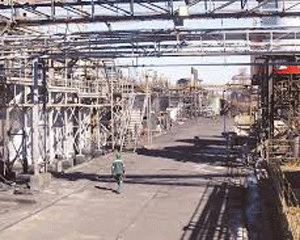
RioZim says it is still awaiting a response from government over its indigenisation proposal which it submitted a few months ago, a senior company official said.
BY KUDZAI CHIMHANGWA
The Zimbabwe Stock Exchange (ZSE)-listed concern is also working on various initiatives to retire its debt.
RioZim chief executive officer, Ashton Ndlovu said the group was not yet certified as having complied with indigenisation requirements.
“Indigenisation authorities asked for information which we have given and the 51% was as according to classification given by the NIEEB (National Indigenisation and Economic Empowerment Board), so we are still waiting for a formal response,” said Ndlovu.
The Indigenisation and Economic Empowerment Act, which requires foreign-owned companies to sell a 51% stake to indigenous people, has caused great concern among international investors seeking to explore new and emerging markets in the country.
RioZim requires US$300 million for its expansion projects but such funding is dependent on the firm acquiring indigenisation certification.
The firm needs to increase production at Masvingo-based Renco Mine, an overhaul and expansion of Empress Nickel Refinery in Bindura from 14 000 metric tonnes to 45 000 metric tonnes per annum and re-opening of the Sengwa Colliery.
- Chamisa under fire over US$120K donation
- Mavhunga puts DeMbare into Chibuku quarterfinals
- Pension funds bet on Cabora Bassa oilfields
- Councils defy govt fire tender directive
Keep Reading
The opening of Sengwa would result in the construction of a 150 MW coal-fired power station.
The firm also intends to upgrade its rail infrastructure and adopt new technologies, such as underground conveyors in order to extract core at a faster rate.
Ndlovu said Rio Gold, a subsidiary of RioZim, will become the major gold operation and openings would be available to investors particularly interested in investing in gold operations. He however said political uncertainty continued to be an issue of concern for many companies in Zimbabwe.
Only recently, RioZim and Tourism and Hospitality minister Walter Mzembi were locked in a court battle after the company accused the minister, alongside his advisors Obediah Mazombwe and Chivi South MP Irvine Dzingirai, of allegedly causing disturbances at Renco Mine. The mine is a subsidiary of RioZim.
“I’m pleased to say that is behind us but there is no guarantee that we will not have similar incidents,” said Ndlovu.
This year the company is conservatively looking at a 5,2% increase in gold production.
The mining group was also saddled with a huge debt with US$40 million being owed to a number of local banks, including ZB Bank, Tetrad, Metropolitan and the Infrastructure Development Bank of Zimbabwe (IDBZ).
Ndlovu said the reality was that the group must operate optimally and efficiently, necessitating the need for cost cutting.
RioZim shareholders last year approved the capital-raising initiative of US$10 million through a private placement, US$5 million through a rights issue and US$45 million through convertible debentures.
“We will continue with our initiative of restructuring and one of the things that was choking this company is that we essentially operated on short-term overdraft,” he said.
“We do expect that by mid-year we will have paid off two or three banks who are the smaller banks and really we have no intention in our rationalisation plan to continue doing business with them.”











